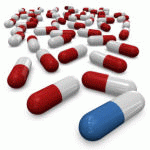Pharmacology
|
14 november 2019 13:00:10 |
| Marine Drugs, Vol. 17, Pages 642: Preparation of Antioxidant Peptide by Microwave- Assisted Hydrolysis of Collagen and Its Protective Effect Against H2O2-Induced Damage of RAW264.7 Cells (Marine Drugs) |
|
Tweet Antioxidant peptides have elicited interest for the versatility of their use in the food and pharmaceutical industry. In the current study, antioxidant peptides were prepared by microwave-assisted alkaline protease hydrolysis of collagen from sea cucumber (Acaudina molpadioides). The results showed that microwave irradiation significantly improved the degree of hydrolysis of collagen and the hydroxyl radical (OH⋅) scavenging activity of hydrolysate. The content and OH⋅ scavenging activity of collagen peptides with molecular weight ≤ 1 kDa (CPS) in the hydrolysate obtained at 250 W increased significantly compared with the non-microwave-assisted control. CPS could scavenge OH⋅ and 2,2-diphenyl-1-picrylhydrazyl (DPPH) radical in a dose-dependent manner. The scavenging activity of OH⋅ and DPPH radical was 93.1% and 41.2%, respectively, at CPS concentration of 1 mg/mL. CPS could significantly promote RAW264.7 cell proliferation and reduce the Reactive Oxygen Species (ROS) level of H2O2-induced damage in RAW264.7 cells in a dose-dependent manner. Furthermore, all CPS-treated groups exhibited an increase in superoxide dismutase (SOD) and glutathione peroxidase (GSH-Px) and a decrease in malondialdehyde (MDA) level compared with the control. These results showed that CPS could effectively protect RAW264.7 cells from H2O2-induced damage, implying the potential utilization of CPS as a natural antioxidant for food and pharmaceutical applications. |
| 193 viewsCategory: Biochemistry, Molecular Biology, Pharmacology |
 Marine Drugs, Vol. 17, Pages 639: Deciphering Molecular Mechanism of the Neuropharmacological Action of Fucosterol through Integrated System Pharmacology and In Silico Analysis (Marine Drugs) Marine Drugs, Vol. 17, Pages 639: Deciphering Molecular Mechanism of the Neuropharmacological Action of Fucosterol through Integrated System Pharmacology and In Silico Analysis (Marine Drugs)Marine Drugs, Vol. 17, Pages 641: A Microbiological, Toxicological, and Biochemical Study of the Effects of Fucoxanthin, a Marine Carotenoid, on Mycobacterium tuberculosis and the Enzymes Implicated in Its Cell Wall: A Link Between Mycobacterial Infection and Autoimmune Diseases (Marine Drugs) 
|
| blog comments powered by Disqus |
MyJournals.org
The latest issues of all your favorite science journals on one page
The latest issues of all your favorite science journals on one page



